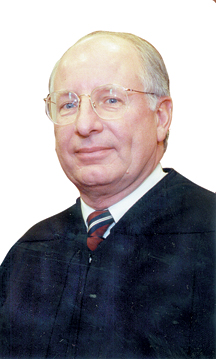On July 20, 2011, Emilie DiFranco sent a public-records request by e-mail to the city of South Euclid in care of Keith Benjamin – the clerk of the city council. On July 25, Benjamin responded, indicating that he had received the request and had forwarded it to the director of finance for the city, who was on vacation at the time.
Benjamin told her he would forward the information in electronic format as soon as it “is compiled and reviewed by the Finance Director and Law Director.” However, because of what the city called a “communications breakdown” between Benjamin and the finance department, the request went unfulfilled for nearly six months.
So, on January 11, 2012, DiFranco filed an action in the court of appeals. Two days later, the city provided the records.
This led DiFranco to file a motion for partial summary judgment, arguing that although the action she filed had been rendered moot by the production of the records, she was still entitled to a mandatory award of attorney fees. The city responded with its own motion for summary judgment, in which it argued only that DiFranco’s action was now moot.
Ultimately, the court of appeals granted the city’s motion for summary judgment and denied DiFranco’s motion. The court of appeals concluded that her case was now moot and that she had failed to prove any public benefit permitting attorney fees. After that, the case came before us – the Ohio Supreme Court – for a final review.
The relevant law in this case was amended in 2007 to establish new standards for awarding attorney fees in public-records cases. The new law now specifies circumstances under which a court may award reasonable attorney fees and other circumstances under which a court must award reasonable attorney fees to the aggrieved person in such a court action.
The court of appeals didn’t consider any of the amended language from the law in its analysis but rather stated only that the award of fees depends on demonstrating that the release of the requested records “provides a public benefit that is greater than the benefit that enures the requestor.”
This language apparently refers to cases from before the amendment, in which the court held that in “exercising its direction” to determine the propriety of a fee award, “a court considers the reasonableness of the government’s failure to comply with the public-records request and the degree to which the public will benefit from the release of the records in question.”
Although our court has in the past applied the public-benefit test in determining whether to award attorney fees, after the 2007 amendments, the use of that test must be squared with the provisions of the new language of the law. Because the law explicitly states the criteria for awarding and reducing attorney fees, the court of appeals erred by applying a public-benefits test that isn’t set forth in the law as it is currently written.
Under the new language, a court must first determine whether attorney fees are discretionary or mandatory. The law reads, in part, “If the court renders a judgment that orders” production of public records, “the court may award reasonable attorney’s fees…” It then states that the “court shall award reasonable attorney’s fees” when either of the following applies.
The first exception is if the “public office…responsible for the public records failed to respond affirmatively or negatively to the public records request in accordance with the time allowed” by the law.
The second exception is if the “public office…promised to permit the” requestor “to inspect or receive copies of the public records requested within a specified period of time but failed to fulfill that promise within that specified period of time.”
In our interpretation of the language, the first sentence covers discretionary fees, which are to be awarded “if the court renders a judgment that orders” production of records. Mandatory fees are covered in the second sentence and are awarded if one of those two conditions exist.
This point is important since the court of appeals did not have to “render a judgment” because the city produced the records immediately on discovering that DiFranco had filed an action with the court of appeals.
This section of the law contemplates that in a public-records case in which a court renders a judgment, attorney fees are generally discretionary – except that in certain circumstances, they are mandatory. And the second two paragraphs describe the exceptions to the otherwise discretionary fees.
At least two policy reasons support this reading of the law. First, it encourages people requesting public records to remind the government entity that the request hasn’t been fulfilled, without resorting to litigation. This allows the requestor to receive the records without burdening the public purse. DiFranco has done this many times without incident, though she didn’t do so in this case.
Second, this interpretation reins in attorneys. The law is designed to ensure that public agencies and employees timely and reasonably respond to public-records, not to ensure a livelihood for attorneys who scour the state hoping for a failure to respond. Making the award of both discretionary and mandatory attorney fees dependent on a court order makes it more likely that the attorney was required to provide a real service beyond the filing of a complaint.
In this case, DiFranco is asking for mandatory attorney fees, but under our holding, she is not eligible for them because the court of appeals didn’t issue a judgment ordering the city to produce the requested records.
Therefore, by a six-to-zero vote, we concluded that the court of appeals erred in not engaging the analysis required by the amended law before deciding not to award attorney fees. We affirmed that judgment, but on the basis that the court did not order the city to produce the requested records, and under the language of the law, that precludes an award of fees.

